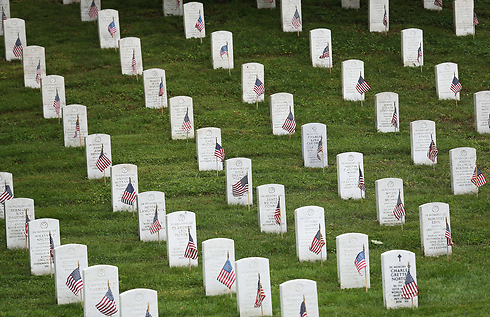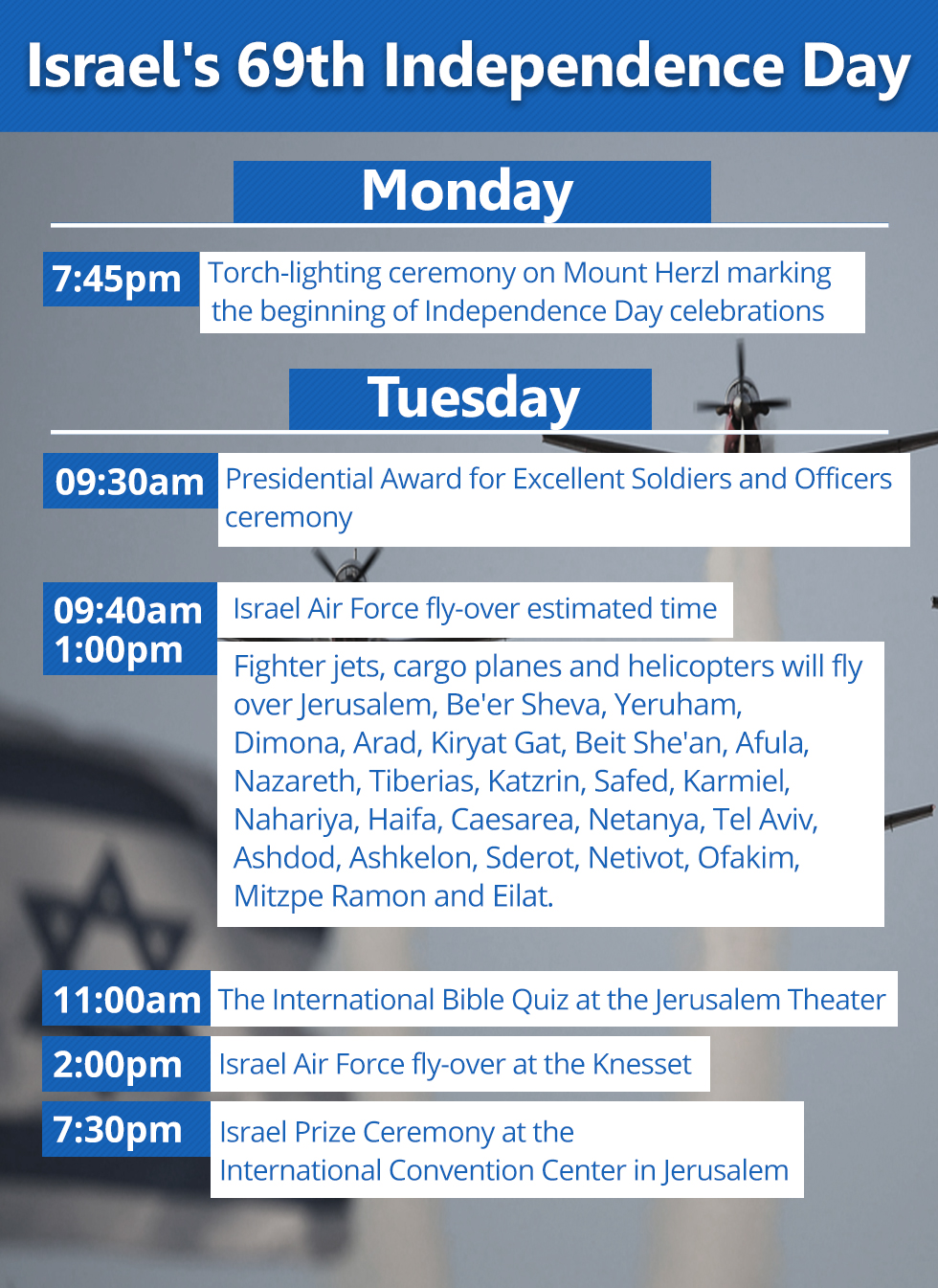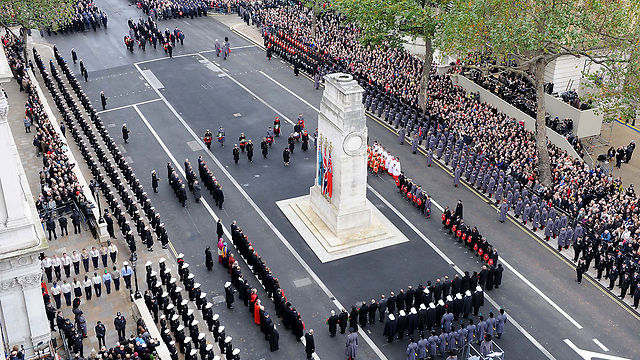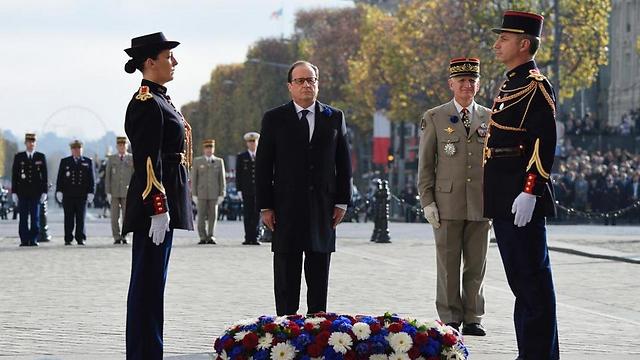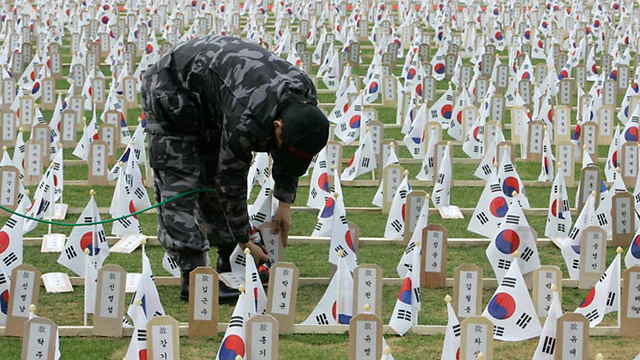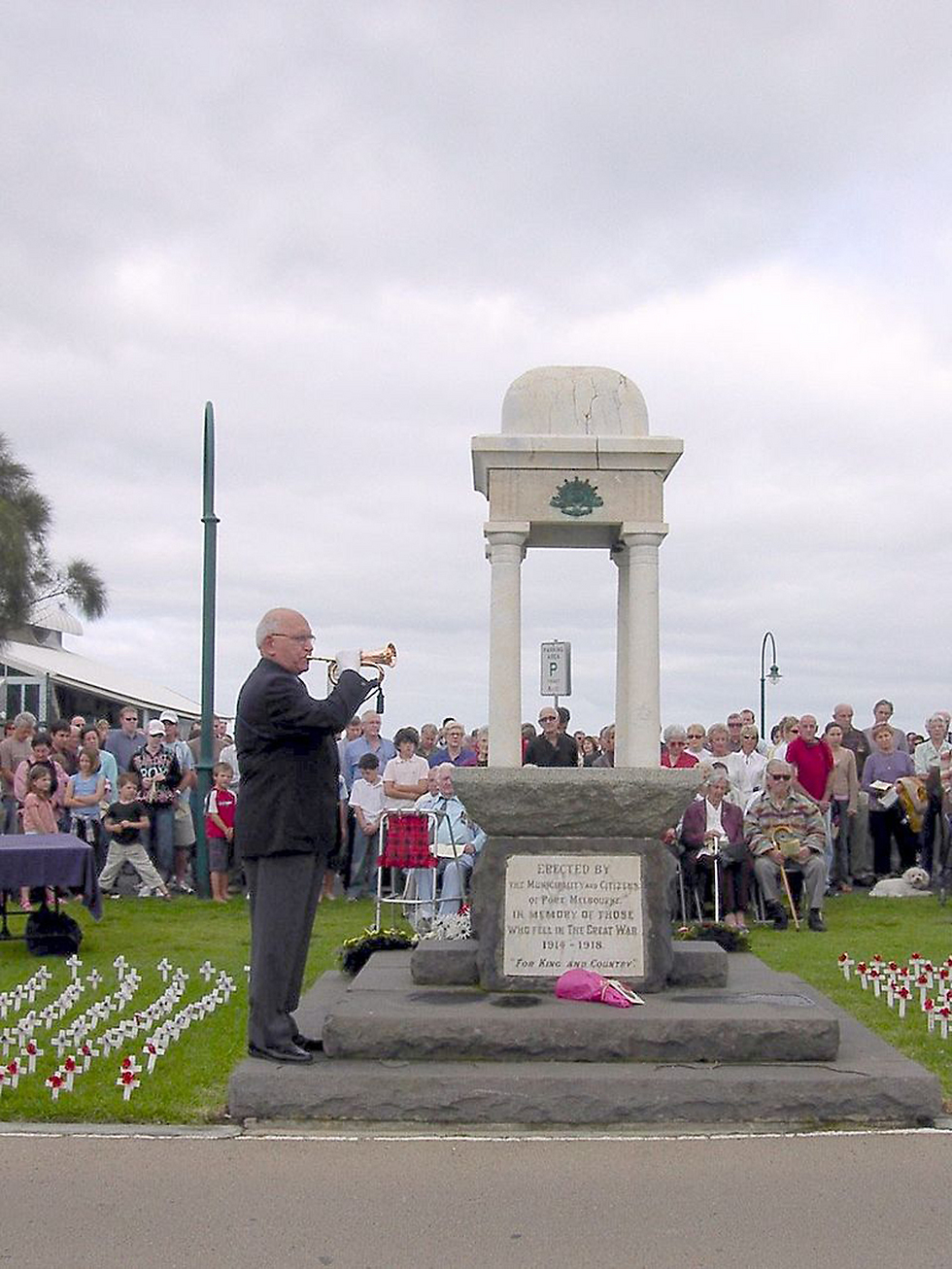
As Israel lowers its head in memory of the 23,544 fallen soldiers and victims of terror, here is a look at other countries around the world mark their memorial days.
The United States
Americans remember the men and women of the armed forces who fell in the line of duty. American Memorial Day is held every year on the last Monday in May with state and local ceremonies and military parades.
American Memorial Day is considered a national holiday day that is used for hiking, shopping and rest, and it symbolizes the beginning of the summer season.
During this day, memorial ceremonies are held in national cemeteries throughout the United States, where small flags are placed on headstones and state flags are lowered to half mast.
Originally, American Memorial Day was set to honor the memory of the soldiers of the Union Army in the American Civil War, but after World War I it became a national memorial day in which all those who died in battles are remembered.
The United Kingdom
Memorial Day in the United Kingdom (Remembrance Sunday) is held every Sunday closest to November 11, the day Germany signed the armistice which brought the First World War to an end. Today, Britain marks Memorial Day for all the Fallen of the Wars of the Kingdom and the British Empire since the Great War.
Every year at 11:00am on November 11th, Britain observes two minutes of silence. Remembrance ceremonies for those who fell in wars are also held throughout the kingdom at cemeteries, war memorials, cathedrals and churches.
The main state ceremony is held at The Cenotaph on Whitehall in London in the presence of the Queen, members of the royal family, the prime minister, politicians, military commanders and other public figures.
The two minutes of silence in London begin with the chiming of Big Ben and end with a boom of a cannon shot. After two minutes of silence, the queen and other public figures place wreaths on the monument to remember the fallen.
The symbol of the British Memorial Day is the red poppy flower from the battlefields of Flanders, Belgium, where hundreds of thousands of British soldiers fought and died in the First World War.
France
Armistice Day is observed in France every year during special remembrance ceremonies held in churches on November 11 to commemorate the fallen of the various wars. On this day, the state flag drops to half mast in public institutions.
During French Memorial Day, military parades are held at war memorials throughout the country and the Tomb of the Unknown Soldier in Paris. Prominent public figures, led by the President of France, take part in memorial ceremonies and place flowers on monuments.
Armistice Day is considered a national holiday day in France and post offices, banks and many shops and businesses are closed on this day. Restaurants and cafés outside of tourist sites are typically closed. However, train stations, airports and main roads remain open. In some parts of the country, roads are closed for military marches.
South Korea
Memorial Day in South Korea is held each year on June 6th in order to remember the men and women who were killed in the line of duty during the Korean War and other battles.
The main state memorial ceremony is held in the capital Seoul and at 10am, sirens sound throughout the country marking the beginning of a minute of silence.
Australia and New Zealand
Australia and New Zealand hold their National Memorial Day (ANZAC Day) on April 25. Originally, Anzac Day was held to honor Australian and New Zealand Army Corps soldiers who fought in Gallipoli against the Ottoman Empire during WWI.
The invasion of Gallipoli ended in bloody defeat for allied forces. In total, during the Great War, 60,000 Australian and 20,000 New Zealand soldiers were killed.
During the Memorial Day, the two countries hold a dawn vigil (marking the beginning of the Gallipoli landings), marches and remembrance ceremonies. The majority of ceremonies are held at various memorials in different cities around both countries.
However, since the outbreak of World War II, Anzac Day has become the Memorial Day for all those killed in conflicts involving forces from the two countries. One of the traditions of the day is drinking coffee with rum after dawn ceremonies as soldiers did prior to battle.
Nigeria
Memorial Day for the Armed Forces was held in the African country every year on November 11 to commemorate forces that fell in the battles of World War I, when Nigeria was part of the British forces. However, this date was changed to January 15, the day the Nigerian Civil War ended in 1970.
Turkey
Turkish Memorial Day is held annually on March 18th on the anniversary of the victory over the Allies in the Gallipoli invasion of 1915. During Memorial Day, the country pays homage to all members of the armed forces, men and women, who fell in the line of duty for their homeland.
Italy
Armed Forces Day is held every year on November 4th when Austria-Hungary surrendered, thus ending the First World War on the Italian front.
Germany
German Memorial Day (Volkstrauertag) was held to mark the memory of all those killed during the First and Second World Wars, two Sundays before the first day of Advent.
The Germans began to mark their memorial day in 1919 in memory of those killed in World War I, but due to various controversies surrounding this day, it was not observed regularly.
Only in 1934 did the Nazis declare Memorial Day a national holiday, and it was called "Heldengedenktag." This day lasted until 1945, with the end of World War II and the defeat of the Nazis. In 1948, the Germans again marked Memorial Day with what was known as "National Day of Mourning."
During the German Memorial Day, the chancellor of the state and various public figures deliver special speeches and an orchestra or chorus plays the song "Ich hatt 'einen Kameraden," which translates to "I had a comrade."













